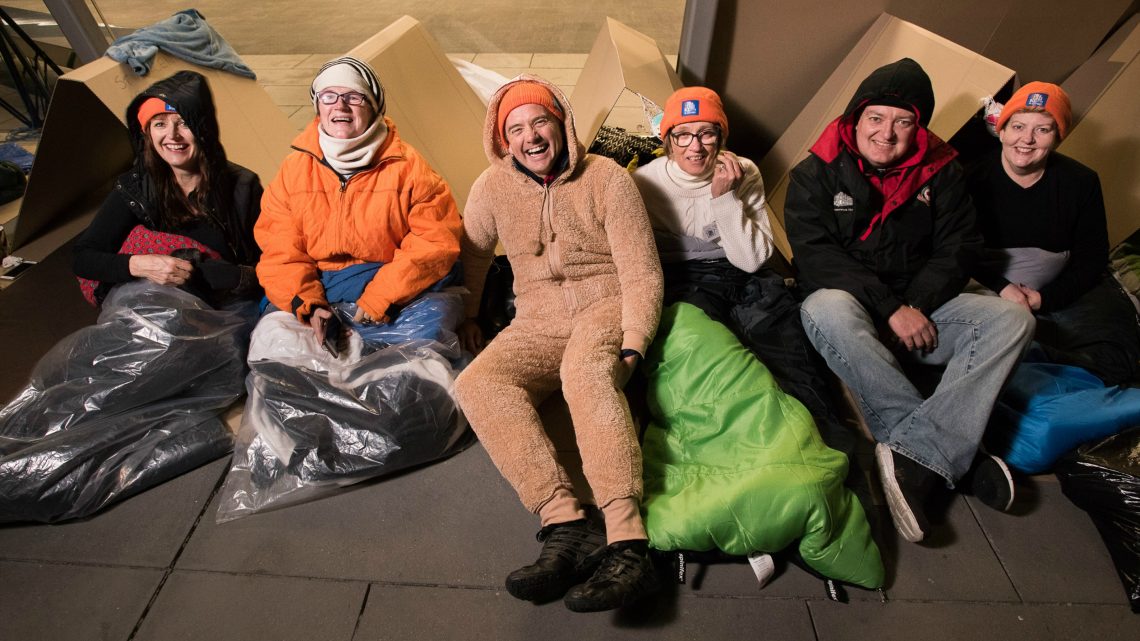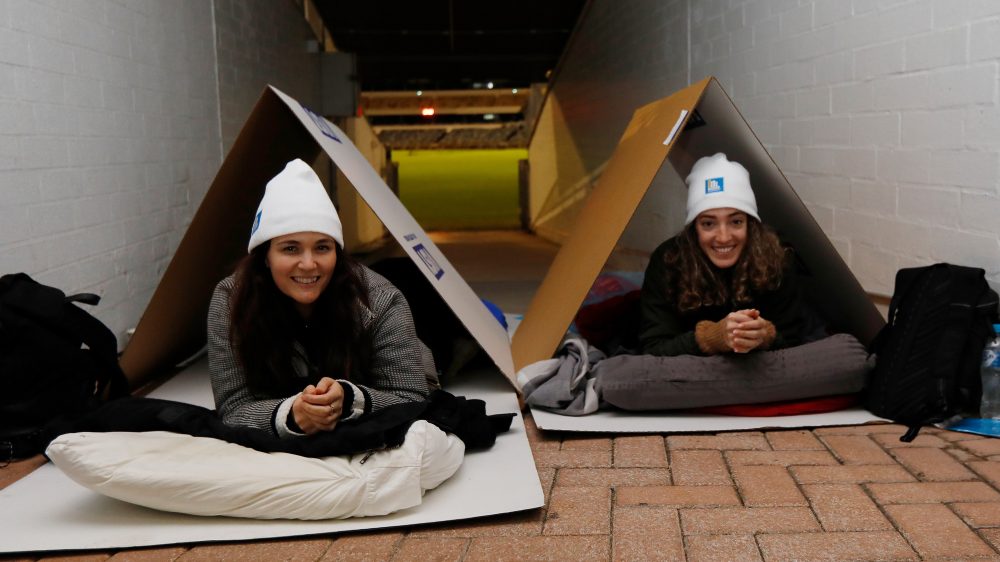World Homeless Day
Bucharest – 8/9 October 2021 (2016)
World Homeless Action Day is a worldwide collaborative effort that is marked on the 10th day of October every year.

Casa Ioana is marking World Homeless Day by organising a Sleep Out in Bucharest to raise awareness of people experiencing homelessness and highlighting Casa Ioana’s work with women and children experiencing domestic abuse and family homelessness as a local solution to the phenomena.
When: Between 22.00 hours Friday 8th October and 06.00 hours Saturday 9th October
Where: Bucharest and Cluj-Napoca
Casa Ioana has organised a Sleep Out every year since 2016. This year, Casa Ioana is organising an additional three group Sleep Outs in Bucharest and Cluj-Napoca:
- Schools’ Sleep Out with students and staff sleeping in the grounds of their schools
- CEO Sleep Out. In a venue(s) to be decided
- Diplomats’ Sleep Out in the grounds of the British Ambassador’s residence in Bucharest
World Homeless Day was born out of discussions between people helping others experiencing homelessness in their own countries. The aim and slogan of the Day is ‘locals act locally on a global day’. The emphasis is on giving support that is sensitive to local needs, while being aware of the global problem of homelessness.
Homelessness is a temporary condition that people fall into when they cannot afford to pay for a place to live, or when their current home is unsafe or unstable. Other factors, such as job loss, physical and mental disability, various hardships—including personal, and drug addiction can accelerate people’s slide into poverty, and for some, eventually homelessness, especially in the absence of proper social services. The lack of housing, access to healthcare, and supportive services, then act as others barriers that keep individuals from moving out of homelessness.

There is no single reason why people become homeless. While there are common factors that account for people being forced to live on the street – financial problems, unemployment or family breakdown being most apparent; the reasons behind an individual becoming homeless are often multiple, complex and more often than not, beyond the control of the individual concerned. Therefore, if a person did not have the resources to prevent them from becoming homeless, then it is unlikely that they will have the resources to escape their lives on the street without professional help.
Official figures show that across the European Union there are 125 million people are either experiencing poverty or at risk of becoming impoverished. This figure represents almost a quarter of the population of the EU Member States. Experts say that in some EU countries the crisis is totally out of control. Once someone falls into the poverty trap, it is very difficult to get out. The confidence of those experiencing poverty is eroded, mental health often deteriorates and getting a job with an adequate income becomes a major challenge. Romanian society today is strongly divided, not only in terms of the urban/rural divide to which many have referred, but even more importantly, the divide between the more than 40% of people who continue to be at risk of poverty or social exclusion, and the rest whose well-being is the overwhelming priority of so many official policies. According to Eurostat, Romania also registered the highest rate of children at risk of poverty or social exclusion. With 51 percent of children aged 18 years and below who lack proper access to education, healthcare, housing or food. According to the Casa Ioana Association’s president, Ian Tilling, people experiencing homelessness are particularly affected, finding themselves at the margins of society and facing seemingly insurmountable barriers in trying to change their situations for the better.